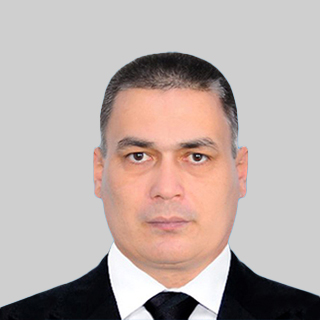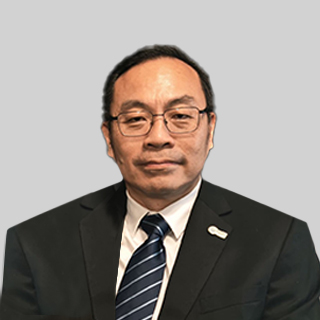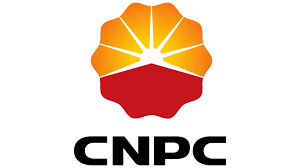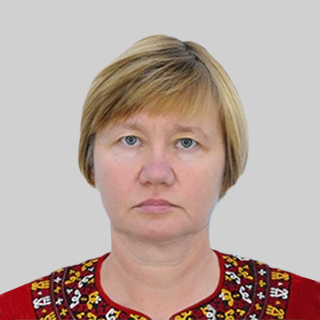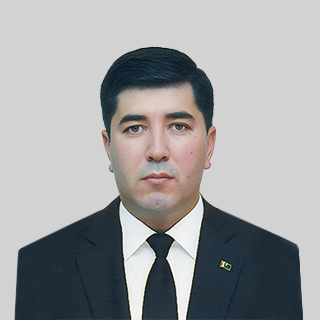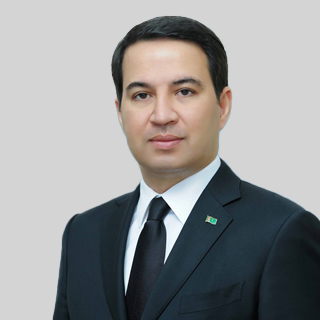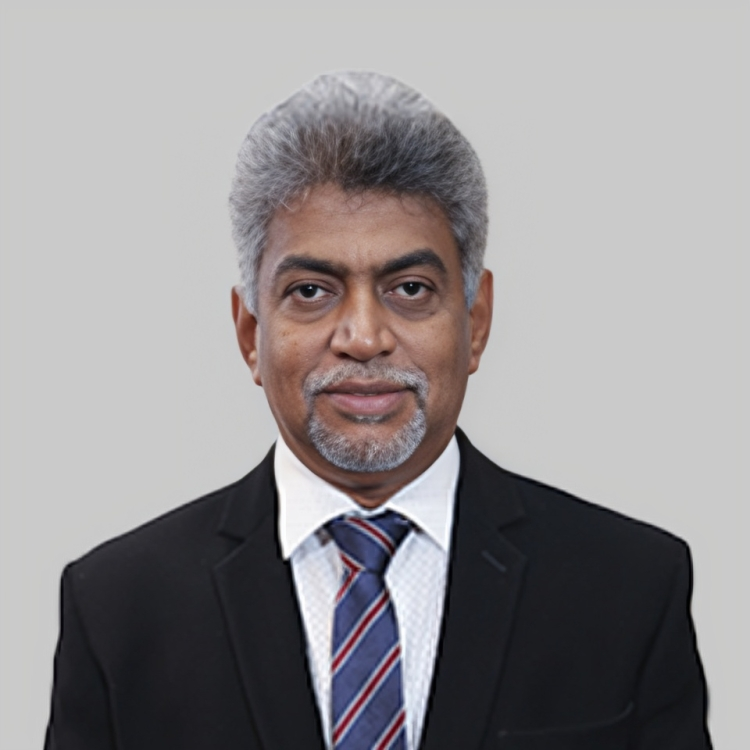14:00 – 21:00
Registration of delegates of the forum at Mandarin Oriental
19:00 - 22:00
Cocktail reception - Lounge on the Park - Ground Floor ( Mandarin Oriental )
TOPIC
In recent years, AI has become a transformative force in all industries, from healthcare and finance to software development. The oil and gas sector is also no exception as it stands on the edge of a technological revolution. This round-table discussion, organised in collaboration with SPE Kuala Lumpur Section, focuses on how AI, using automation and predictive analytics, is changing the energy landscape. In the near future, the adoption of AI technologies is expected to present new opportunities to improve efficiency, reduce operating costs and unlock the vast potential of unconventional reservoirs. The main topics of the session will be:
- Reservoir modeling and simulation using machine learning to enhance exploration and production accuracy.
- Intelligent automation in drilling and well operations to improve safety and efficiency.
- Data analytics for decision-making in upstream, midstream, and downstream operations.
- AI applications in reducing carbon footprint and supporting sustainable energy practices
TOPIC
The roundtable is dedicated to exploring future opportunities and prospects in the fields of education and tourism. Particular attention will be given to potential areas of cooperation, the exchange of best practices, and the impact of global trends on the development of these sectors. Participants will discuss strategies for strengthening educational systems, promoting sustainable tourism, and leveraging cultural exchange for mutual growth. The session will also highlight investment opportunities in Turkmenistan and Malaysia, as well as identify pathways to enhance their global competitiveness in the areas of education and tourism. The session will additionally address:
- Enhancing collaboration in the education system to train highly qualified specialists.
- Prospects for cooperation in artificial intelligence and cybersecurity.
- Promoting sustainable tourism through cultural exchange and responsible travel initiatives.
- Developing joint initiatives to increase international student mobility and bilateral partnerships.
Speaker
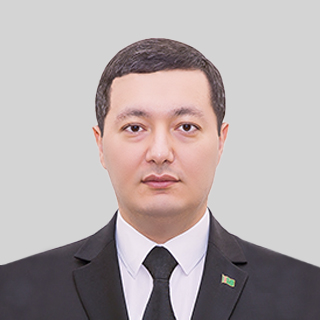 Azat Ataev - Deputy Minister of Education of Turkmenistan
Azat Ataev - Deputy Minister of Education of Turkmenistan
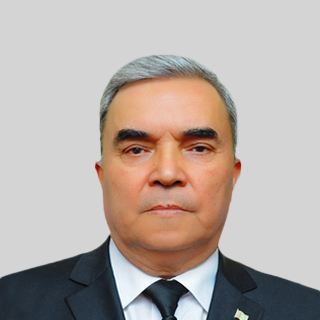 Bayrammyrat Atamanov - Rector of the Yagshygeldi Kakayev International Oil and Gas University
Bayrammyrat Atamanov - Rector of the Yagshygeldi Kakayev International Oil and Gas University
 Batyr Mammedov - Rector of the Turkmen State Institute of Architecture and Construction
Batyr Mammedov - Rector of the Turkmen State Institute of Architecture and Construction
 Azat Orazmuhammedov - General Director, CGSC Turkmen Investment Company
Azat Orazmuhammedov - General Director, CGSC Turkmen Investment Company
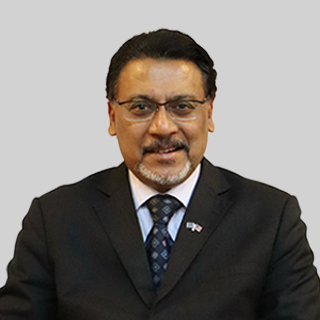 Tan Sri Dato' Professor Joseph Adaikalam - Founder President, executive chairman, Binary University
Tan Sri Dato' Professor Joseph Adaikalam - Founder President, executive chairman, Binary University
 Dato’ Ir. Dennis Ganendra - Chief Executive Officer of Minconsult Sdn. Bhd
Dato’ Ir. Dennis Ganendra - Chief Executive Officer of Minconsult Sdn. Bhd
12:30 – 13:30
LUNCH IN THE "KLCC" BANQUET HALL (3RD FLOOR)
TOPIC
In 2025, the International Year of Peace and Trust, declared by the special Resolution of the UN General Assembly co-sponsored by 86 countries, Turkmenistan will occupy a key position in shaping the future of global energy, utilising its rich resources, strategic geographic location, and commitment to peace to strengthen regional stability. Key topics will address Turkmenistan's energy policy as the foundation of energy diplomacy, regional stability, and global cooperation. Particular attention will be given to the potential of the transnational TAPI gas pipeline, which strengthens energy security, promotes multilateral cooperation, and opens investment opportunities for both the national economy and the economies of South Asian countries. For example, Turkmenistan supplies eco-friendly natural gas to China, contributing to the country’s sustainable economic growth, while simultaneously reducing dependence on coal and making a significant contribution to environmental protection. The plenary session will cover the following key aspects:
- The role of Turkmenistan in energy diplomacy and its influence on regional stability and security
- The rich hydrocarbon resource base of Turkmenistan.
- Existing transnational gas pipelines and new projects.
- New investment projects in Turkmenistan’s oil and gas industry.
Moderator
Sponsor

Speaker
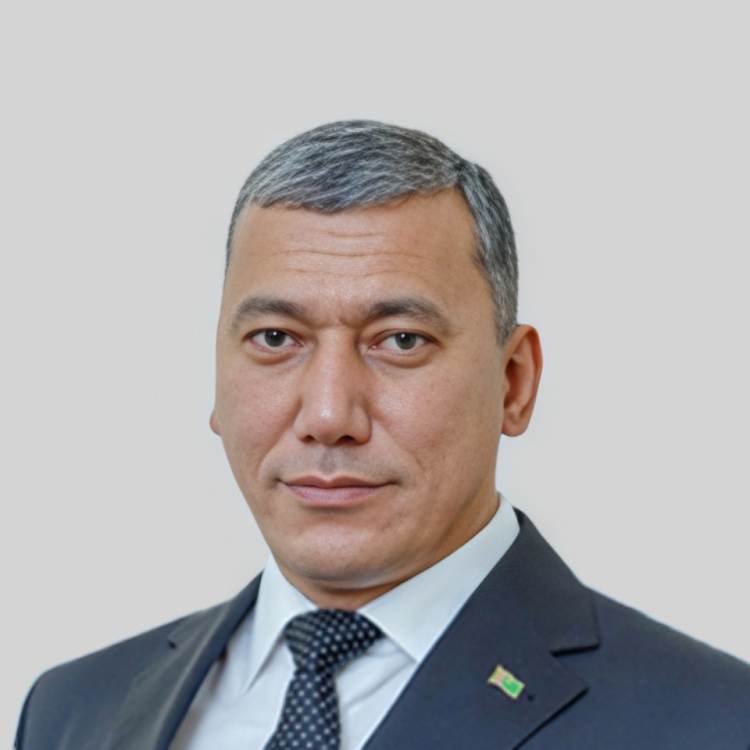 Batyr Amanov - Deputy Chairman of the Cabinet of Ministers of Turkmenistan
Batyr Amanov - Deputy Chairman of the Cabinet of Ministers of Turkmenistan
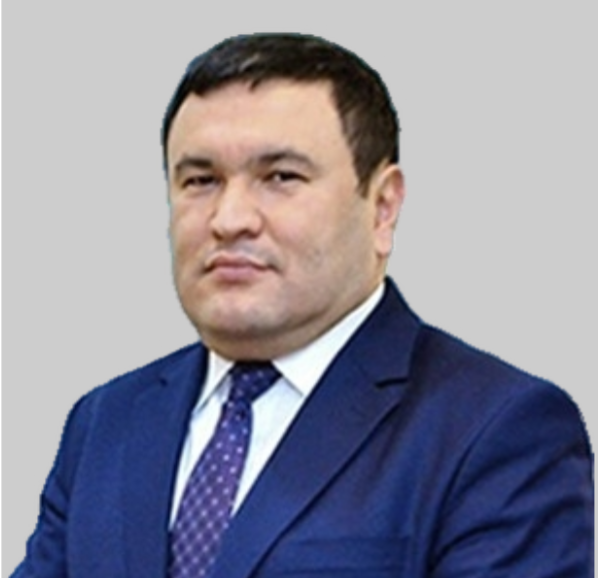 Jurabek Mirzamakhmudov - Minister of Energy of the Republic of Uzbekistan
Jurabek Mirzamakhmudov - Minister of Energy of the Republic of Uzbekistan
 Haitham Al Ghais - Secretary General, OPEC
Haitham Al Ghais - Secretary General, OPEC
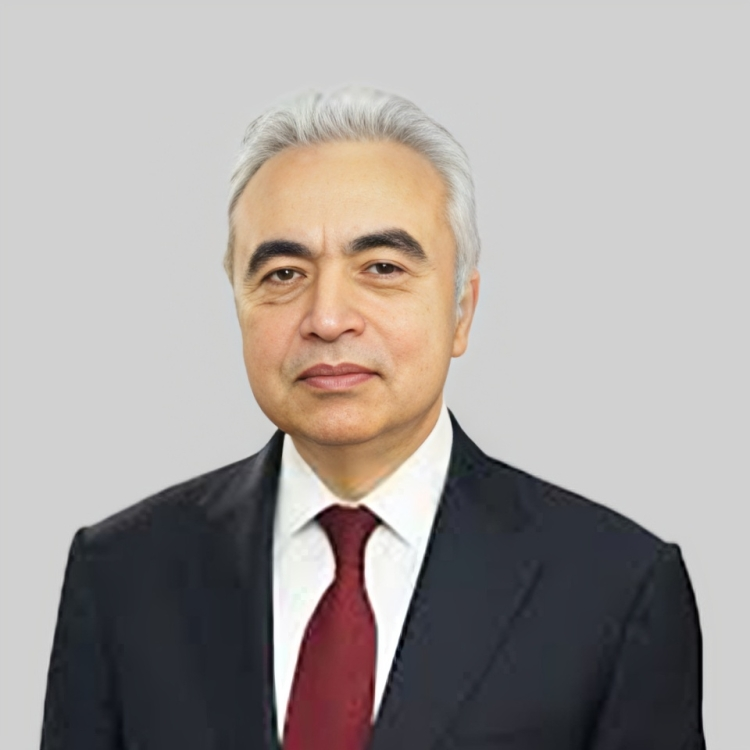 Fatih Birol - Executive Director, International Energy Agency (IEA)
Fatih Birol - Executive Director, International Energy Agency (IEA)
 Atsuko Hirose - Acting Secretary-General of the Energy Charter Secretariat
Atsuko Hirose - Acting Secretary-General of the Energy Charter Secretariat
Moderator
Sponsor

15:00 - 15:30
COFFEE BREAK


TOPIC
The session will examine investment opportunities in Turkmenistan’s energy sector, including new prospects for natural gas exports, gas chemical development, and power generation. Particular focus will be placed on major initiatives such as the Turkmenistan–China transnational gas pipeline, the TAPI project, gas supplies to Uzbekistan, and swap deliveries through Iran to Turkey. Participants will be presented with insights into advanced technologies, export strategies, and the country’s investment potential. Key topics will include:
- Overview of existing and analysis of new natural gas export routes.
- Next stages of industrial development of the "Galkynysh" field.
- Modernisation of existing and construction of new gas chemical complexes.
- Electricity generation based on natural gas.
- Progress in the implementation of the TAPI (Turkmenistan–Afghanistan–Pakistan–India) transnational gas pipeline.
- Overview of existing and analysis of new electricity export routes along the Turkmenistan– Afghanistan–Pakistan (TAP) corridor, including developments in renewable energy sources.
Speaker
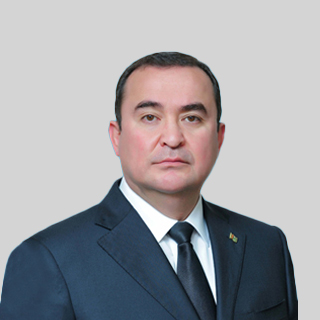 Maksat Babayev - State Minister of Turkmenistan – Chairman of State Concern “Turkmengas”
Maksat Babayev - State Minister of Turkmenistan – Chairman of State Concern “Turkmengas”
 Mohamed Hamel - Secretary General of the Gas Exporting Countries Forum (GECF)
Mohamed Hamel - Secretary General of the Gas Exporting Countries Forum (GECF)
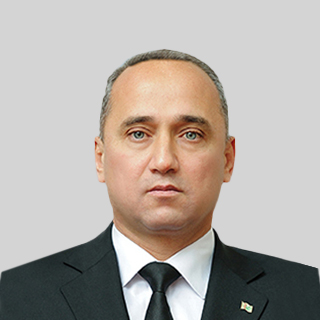 Dovrangeldi Sapbayev - Chairman, SC “Turkmenhimiya”
Dovrangeldi Sapbayev - Chairman, SC “Turkmenhimiya”
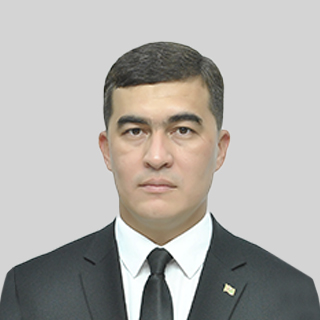 Annageldi Saparov - Minister of Energy of Turkmenistan
Annageldi Saparov - Minister of Energy of Turkmenistan
 Wu Dawei - Deputy general, CNODC
Wu Dawei - Deputy general, CNODC
 Abdulla Al Shamsi - Director of Business Development at XRG (ADNOC)
Abdulla Al Shamsi - Director of Business Development at XRG (ADNOC)
 Rickard Vannby - Director, Licensing, Topsoe
Rickard Vannby - Director, Licensing, Topsoe
 Amrith Kalyant Singh - Sales and Commercial Director, GaffneyClineTM energy advisory
Amrith Kalyant Singh - Sales and Commercial Director, GaffneyClineTM energy advisory
16:30- 17:00
COFFEE BREAK


TOPIC
This session will focus on mutually beneficial cooperation in Turkmenistan’s infrastructure projects, with an emphasis on construction, transport, information technology, and telecommunications. Special attention will be given to Turkmenistan's transport diplomacy and its initiatives to revive the Great Silk Road, highlighting the country’s strategic role in global and regional transport corridors. The government's long-term vision for economic diversification and large-scale infrastructure projects that promote the country’s sustainable economic development will be presented at this session. The session will also cover the following topics:
- Modern urban planning and its contribution to sustainable development.
- The role of Turkmenistan in the revival of historical trade routes and its contribution to strengthening ties between Europe and Asia through the TRACECA initiative.
- Turkmenbashi International Seaport – a key hub connecting Central Asia with global markets.
- Transnational railway routes as facilitators of trade and transit development.
- The role of Turkmenistan as a transit hub for global air traffic and multimodal transportation.
- The fiber optic communication lines between Serhetabat and Herat ("White Road of Arkadag"), ensuring regional digital connectivity.
- Prospects of the national satellite "Turkmen Alem 52.0E" in the context of high-tech investments
Speaker
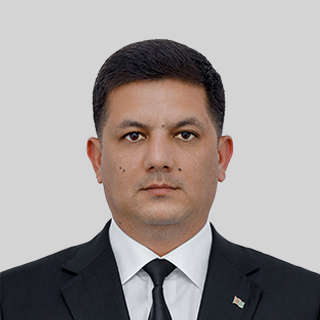 Abdulla Geldiyev - The Minister of Construction and Architecture of Turkmenistan
Abdulla Geldiyev - The Minister of Construction and Architecture of Turkmenistan
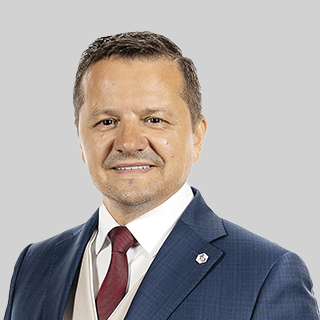 Ştefan Vuza - Owner & President of the Board, Chimcomplex
Ştefan Vuza - Owner & President of the Board, Chimcomplex
 Ruslan Bin Abdul Ghani - Group chief executive officer, Bintulu Port Holdings Bhd
Ruslan Bin Abdul Ghani - Group chief executive officer, Bintulu Port Holdings Bhd
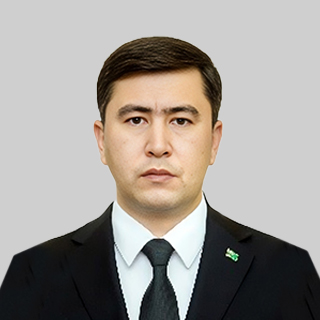 Perhat Yagshiyev - Deputy Minister of Finance and Economy of Turkmenistan
Perhat Yagshiyev - Deputy Minister of Finance and Economy of Turkmenistan
 Alibek Kazangapov - Project Management Specialist, IsDB Regional Hub of Almaty,Kazakhstan
Alibek Kazangapov - Project Management Specialist, IsDB Regional Hub of Almaty,Kazakhstan
19:00 - 22:00
GALA DINNER AT DIAMOND BALLROOM

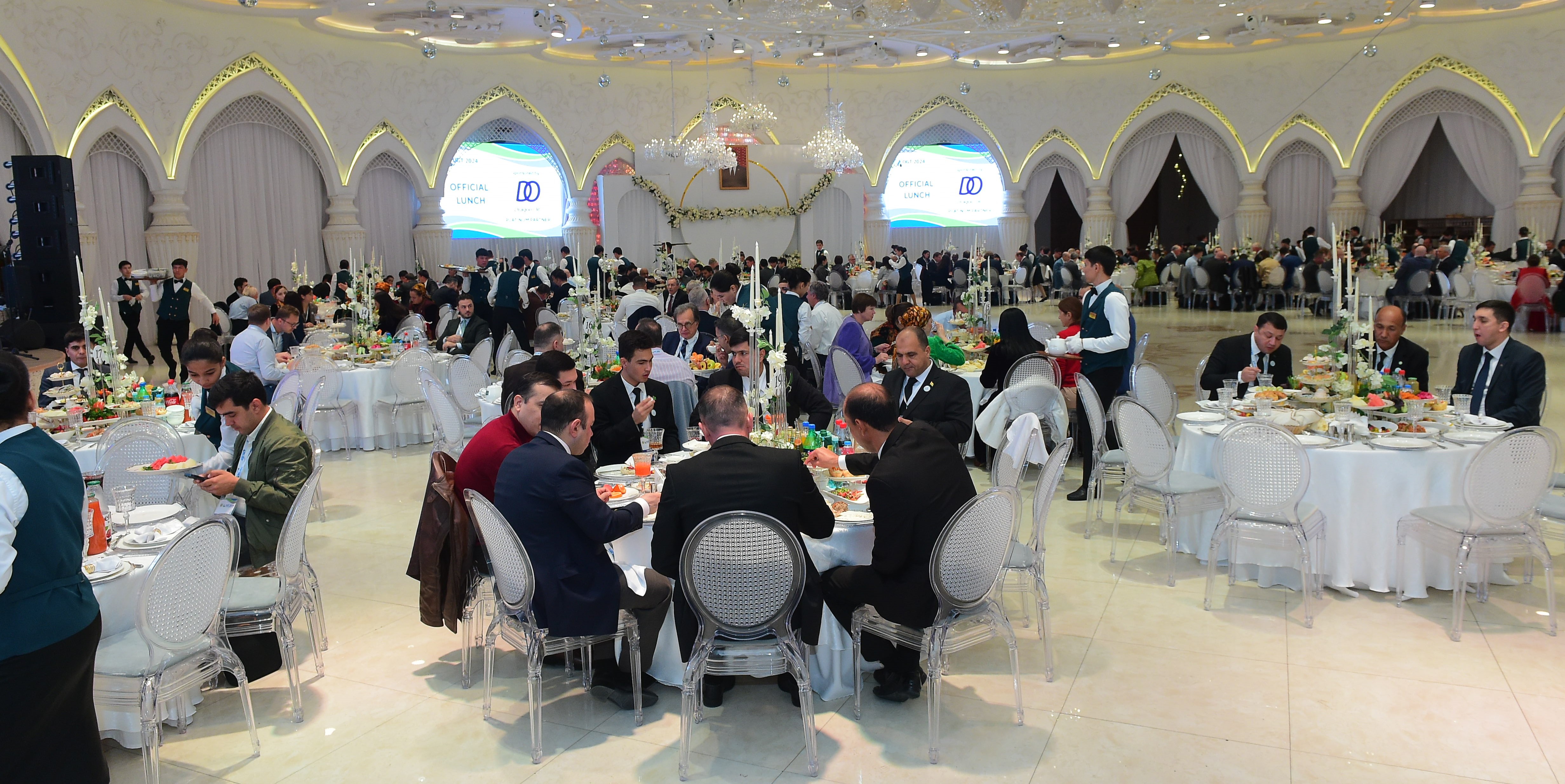
TOPIC
This session will explore broad investment opportunities in Turkmenistan's energy sector, with a specific focus on the oil and petrochemical industries. Turkmenistan's strategic approach aims to leverage its substantial hydrocarbon reserves to stimulate economic growth, diversification, and integration into global markets. A key element of this modernisation is the phased reconstruction of the oil refineries, aimed at increasing refining capacities, improving product quality, and expanding export opportunities. Key discussion topics include:
-Attracting investments for the development of oil blocks in the Turkmen sector of the Caspian Sea.
-Innovative approaches in the exploration and extraction of hydrocarbon resources.
- Analysis of the development and planned construction of modern petrochemical facilities producing high-value-added products for global markets.
- Overview of Turkmenistan's legislation in the field of hydrocarbon resources.
-Optimisation of oil production in mature fields.
-Innovations and challenges in modern geology: exploration and extraction of ore and non-ore minerals, including minerals.
Speaker
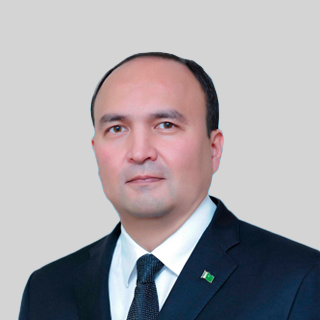 Guvanch Agajanov - Chairman, State Concern “Turkmennebit”
Guvanch Agajanov - Chairman, State Concern “Turkmennebit”
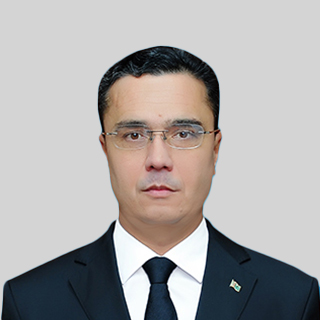 Gurbangeldi Garlyyev - Chairman, State Corporation "Turkmengeology"
Gurbangeldi Garlyyev - Chairman, State Corporation "Turkmengeology"
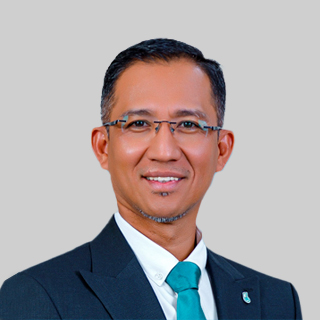 Ismadi Bin Ismail - Chief Executive Officer PETRONAS Carigali (Turkmenistan) Sdn Bhd (PC(T)SB)
Ismadi Bin Ismail - Chief Executive Officer PETRONAS Carigali (Turkmenistan) Sdn Bhd (PC(T)SB)
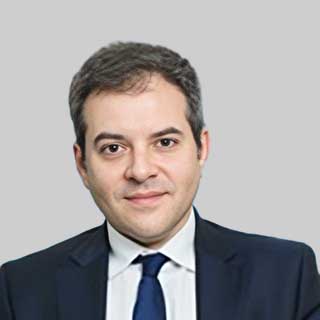 Giorgio Castriota - Managing Director of Eni Turkmenistan Limited
Giorgio Castriota - Managing Director of Eni Turkmenistan Limited
 Steven Travers - Region Director, GaffneyClineTM Energy advisory
Steven Travers - Region Director, GaffneyClineTM Energy advisory
 Syed Saggaf Syed Ahmad - President of the Malaysian Oil, Gas & Energy Services Council (MOGSC)
Syed Saggaf Syed Ahmad - President of the Malaysian Oil, Gas & Energy Services Council (MOGSC)
 Ahmed Radzif - General Manager, EnQuest Southeast Asia
Ahmed Radzif - General Manager, EnQuest Southeast Asia
 Anwarudin Saidu Mohamed - Chairman of SPE Kuala Lumpur Section
Anwarudin Saidu Mohamed - Chairman of SPE Kuala Lumpur Section
11:30-12:00
COFFEE BREAK


TOPIC
This session will focus on the development of Turkmenistan's industrial, agricultural, textile, and food sectors, with a particular emphasis on increasing production and export capabilities. Key investment opportunities and government initiatives aimed at expanding production capacities, import substitution, and enhancing the country’s competitiveness in global markets will be discussed. Investors will gain insights into strategies that foster growth in these sectors and strengthen Turkmenistan’s export potential. The session will also cover the following topics:
- Prospects for the further development of Turkmenistan's private sector – a driver of the country's economic growth.
- Public-private partnership as a key to favorable investment prospects.
- The growing export potential of Turkmenistan's industrial, textile, and food sectors.
- Strategies for expanding product exports to international markets through ISO, API, DNV GL, CE Marking, TÜV, FDA, and HALAL standardisation, strengthening Turkmenistan’s position as a competitive global supplier
Speaker
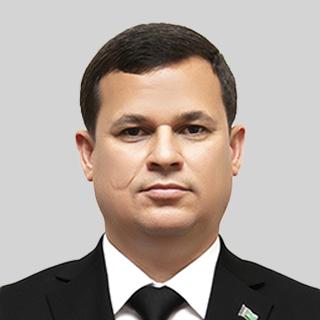 Toyguly Nurov - Minister of Industry and Construction Manufacturing of Turkmenistan
Toyguly Nurov - Minister of Industry and Construction Manufacturing of Turkmenistan
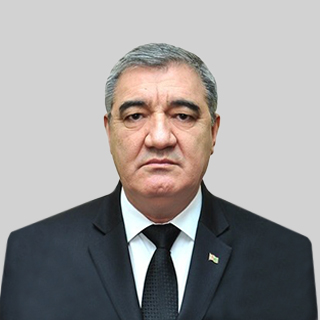 Kerimberdi Gurbanov - Acting Minister of Trade and Foreign Economic Relations of Turkmenistan
Kerimberdi Gurbanov - Acting Minister of Trade and Foreign Economic Relations of Turkmenistan
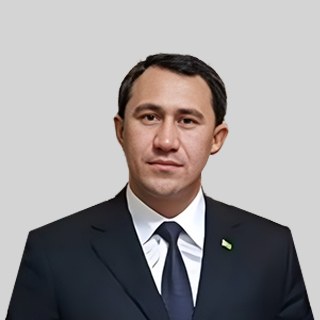 Mergen Gurdov - Head of the Chamber of Commerce and Industry of Turkmenistan
Mergen Gurdov - Head of the Chamber of Commerce and Industry of Turkmenistan
 Zaki Aijaz - Vice President, Federation of Pakistan Chambers of Commerce and Industry (FPCCI)
Zaki Aijaz - Vice President, Federation of Pakistan Chambers of Commerce and Industry (FPCCI)
 Ryan Foong - Technical & Engineering Director | SPT Energy Group, Singapore
Ryan Foong - Technical & Engineering Director | SPT Energy Group, Singapore
13:00-14:00
LUNCH AT KLCC (3RD FLOOR)


TOPIC
This session will focus on Turkmenistan's commitment to climate action, including its efforts under the Global Methane Pledge and a joint project with the International Methane Emissions Observatory (IMEO to improve methane emissions data exchange through the MARS system. Turkmenistan's initiatives in the Aral and Caspian Seas will also be presented, alongside its cooperation with the UN Environment Programme (UNEP) on climate adaptation in the region. The following pressing topics will be discussed:
-Exploration of strategies for reducing methane and CO2 emissions in the oil and gas industry, including Turkmenistan's commitment to the Global Methane Pledge (GMP), the Methane Alert and Response System (MARS), and productive cooperation with the UN Environment Programme (UNEP) and the International Methane Emissions Observatory (IMEO).
-Innovative solutions and monetization in carbon capture, use and storage (CCUS).
- Discussion of policies and incentives to attract investment in emission reduction projects and the development of clean energy in alignment with global climate goals.
- Demonstration of Turkmenistan's sustainable development efforts through the use of advanced technologies, renewable energy, and supporting regulations.
-Progress in Turkmenistan's methane management efforts at the Darvaza gas crater.
-Balancing Ecology and Energy: The Caspian Sea’s Environmental Challenges.
Speaker
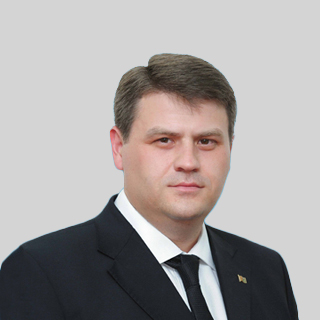 Myrat Archayev - Deputy Chairman, State Concern “Turkmengas”
Myrat Archayev - Deputy Chairman, State Concern “Turkmengas”
 Francesco La Camera - Director, General International Renewable Energy Agency
Francesco La Camera - Director, General International Renewable Energy Agency
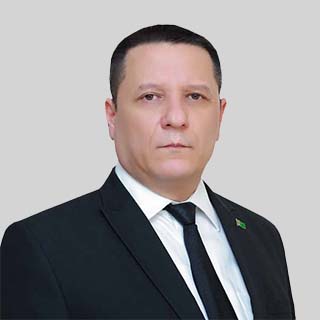 Myrat Atajanov - Director, Caspian Sea Institute
Myrat Atajanov - Director, Caspian Sea Institute
 Antoine Halff - Chief Analyst and Co-Founder, Kayrros
Antoine Halff - Chief Analyst and Co-Founder, Kayrros
 Valerie Ducrot - Executive Director, Global Gas Centre (GGC)
Valerie Ducrot - Executive Director, Global Gas Centre (GGC)
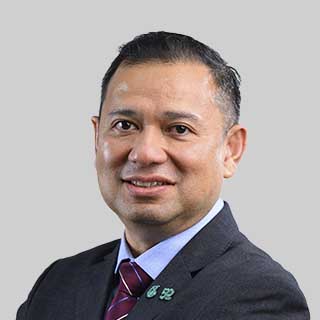 Emry Hisham Yusoff - Senior General Manager Carbon Management PETRONAS
Emry Hisham Yusoff - Senior General Manager Carbon Management PETRONAS
 Jean-Francois Gauthier - Senior Vice-President, Strategy, GHGSat
Jean-Francois Gauthier - Senior Vice-President, Strategy, GHGSat
 Clayton Nash - Director, Strategic Development, Tegre Corporation
Clayton Nash - Director, Strategic Development, Tegre Corporation
15:30-16:00
FORUM CLOSURE


16:00 - 18:00
PRE-ARRANGED MEETINGS WITH THE SENIOR MANAGEMENT OF OIL AND GAS, FINANCE, CHEMICAL, ENERGY AND CONSTRUCTION INDUSTRIES OF TURKMENISTAN
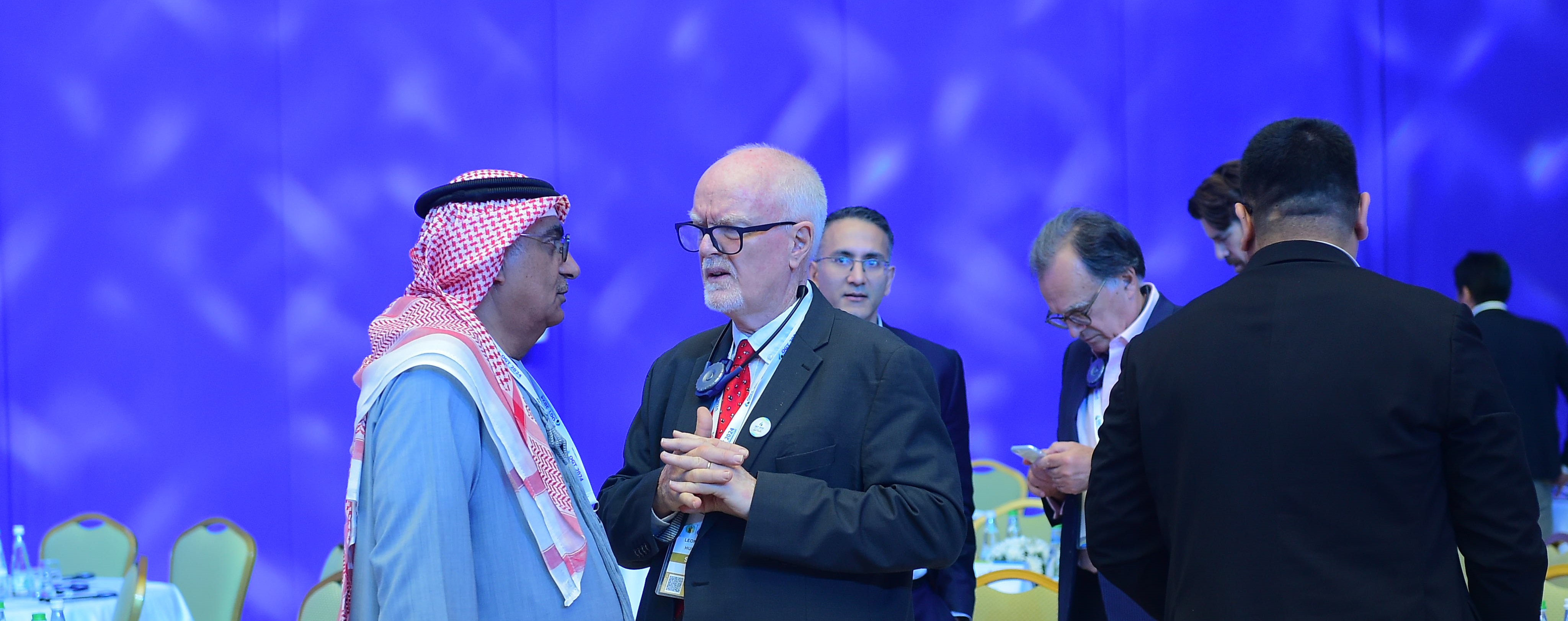
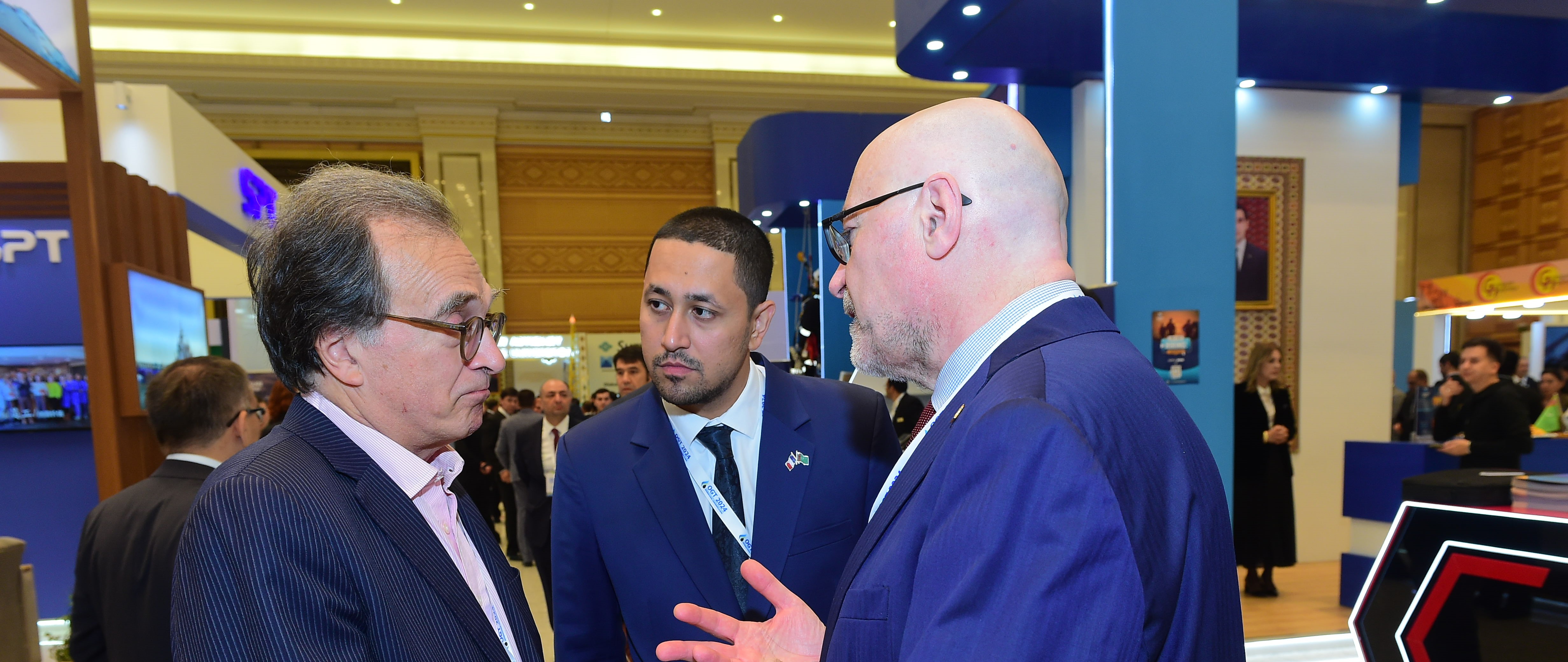
09:00 -12:00
PRE-ARRANGED MEETINGS WITH THE SENIOR MANAGEMENT OF OIL AND GAS, FINANCE, CHEMICAL, ENERGY AND CONSTRUCTION INDUSTRIES OF TURKMENISTAN AT MANDARIN HOTEL(2ND FLOOR)







